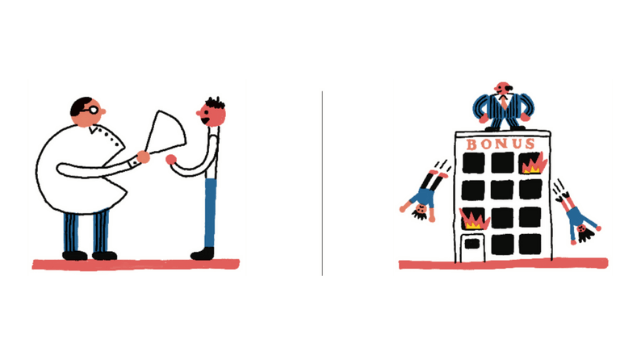The COVID-19 pandemic has been an excellent opportunity to test which companies are living up to the U.S. Business Roundtable’s pledge last August to serve not only their owners, but also workers, customers, suppliers and communities. “Each of our stakeholders is essential,” the Roundtable’s 180 members proclaimed then – a sharp break from their previous stance that the interests of shareholders were their “paramount duty.”
Some have passed the test with flying colours. The Business Roundtable itself formed a CEO COVID-19 Task Force dedicated to the crisis. One member, Salesforce, pledged not to lay off employees for 90 days, and Salesforce’s CEO spent $25 million on 50 million pieces of personal protective equipment for medical staff (with the help of Walmart, FedEx and others).
Many other CEOs have displayed an all-too-rare selflessness. Five senior executives at Comcast, the U.S. telecoms and media giant, including CEO Brian Roberts, said they would donate their entire salaries “for the duration of this situation” to charities supporting COVID-19 relief efforts. Twitter’s CEO, Jack Dorsey, pledged $1 billion (28% of his wealth) to fund global COVID relief efforts.
As of late April, only 6% of the 100 largest American companies had handed out pink slips to their workers, according to JUST Capital’s COVID-19 corporate-response tracker. Many have cut dividends, not only to bolster their cash flows and balance sheets, but also in response to pressure from social and governance activists.
Several companies in Canada and around the world have implemented raises for frontline employees, be they food processors, bank tellers or grocery and retail workers. The Business Council of Canada has been keeping a tally of Canadian members that are stepping up financial and community support or retooling to deliver critical supplies. GM Canada is manufacturing roughly one million masks per month at its Oshawa plant and delivering them at cost to the federal government. Bombardier is delivering 18,000 ventilators and 40,000 visors.
European heavyweights have been rallying, too. Unilever, the consumer-goods giant, has not only donated US$155 million of soap, sanitizer, bleach and food, but also set aside US$775 million for early payments to small suppliers, and to extend credit to small retail customers. “Our strong cash flow and balance sheet mean that we can, and we should, give this support,” CEO Alan Jope said.
Zeroes
Sadly, plenty of bosses have unashamedly put their own interests first during the pandemic. Take Disney, which suspended pay for 100,000 workers at its theme parks but protected executive bonuses. Bob Iger, Disney’s chairman, earned US$47 million in 2019, or 900 times more than the median earnings of the company’s workers, the Financial Times calculated.
Similarly, the board of Denver-based shale oil producer Whiting Petroleum approved US$14.6 million in cash bonuses for top executives in late March, just days before it filed for bankruptcy protection. The CEO collected US$6.4 million, paid immediately.
Even where executives have made sacrifices, “I have a sense boards are doing the minimum necessary to shield themselves from reputational damage,” wrote Andrew Hill, the Financial Times’ management columnist. Examples abound of bosses taking 20% pay cuts, while junior staff have been laid off with nothing more to fall back on than government relief programs.
Some companies deserve a zero not so much for what they have done as how they did it. Bird, a Los Angeles–based start-up in the forefront of the scooter craze, invited staff working from home to log in to a Zoom session, whereupon an unnamed woman told them that more than 400 no longer had jobs. “Like everything we’re experiencing now, this is a suboptimal way to deliver this message,” the bearer of the bad news confessed. She allowed no questions.
Aramark, a big food and uniform services provider and a signatory of last year’s Business Roundtable pledge, is one of numerous companies that have laid off contract workers with no severance pay or rehiring timeline. Marriott, another Business Roundtable member, has told tens of thousands of hotel workers to take unpaid leave.
On another front, it’s hard to feel much sympathy for corporate leaders who have spent their lives telling government to get off their backs, only to pull out the begging bowl when the going gets tough.
Exhibit number one in the COVID-19 era is Sir Richard Branson, founder of the sprawling Virgin empire. Branson has paid no tax in his native U.K. since he moved his principal residence 14 years ago to the British Virgin Islands, where he owns a private island. Yet he has been quick to ask the British government for hundreds of millions of pounds to bail out Virgin Atlantic Airways. Virgin Australia asked a similar favour, but the government turned it down, forcing the airline into bankruptcy in late April. Alas, Virgin’s employees are set to suffer far more hardship than their boss.







